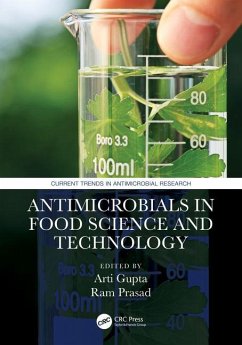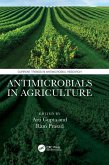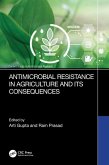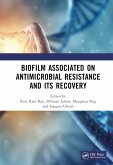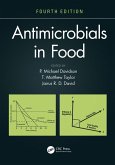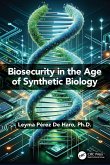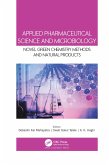The demands of producing high-quality, pathogen-free food rely increasingly on natural sources of antimicrobials to inhibit food spoilage organisms, foodborne pathogens, and toxins. The recent developments and innovations of new antimicrobials from natural sources for a wide range of applications require that knowledge of traditional sources for food antimicrobials is combined with the latest technologies in identification, characterization, and applications. This book explores novel, natural sources of antimicrobials as well as the latest developments in using well-known antimicrobials in food, covering antimicrobials derived from microbial sources, animal-derived products, plants, and value-added products. This book includes the development and use of natural antimicrobials for processed and fresh food products. New and emerging technologies concerning antimicrobials are also discussed.
This bookconsiders recent developments and innovations in food technology in combating infectious diseases and explores advances in antimicrobial constituents and their applications in the fight against microbes. In addition, it also provides a variety of photographs, diagrams, and tables to help illustrate the material. The novel strategies to combat antimicrobial resistance are also described, emphasizing collaborative measures of control. Advanced topics in the volume include food processing, food security, preservation, nutritional analysis, quality control, and maintenance as well as good manufacturing practices in the food industries.
Students, research scientists, academicians, and policy makers can benefit from Antimicrobials in Food Science and Technology as a resource that addresses microbial biotechnology, food microbiology, fermentation technology, ethnopharmacology, toxicology, microbial/medicinal plant products, and all disciplines related to antimicrobial research.
Features of the book:
Covers all food antimicrobials, natural and synthetic, with up-to-date research on each typeRecent references on every conceivable food antimicrobialDescribes recent laws and regulatory guidelines in the selection of appropriate additives for specific food productsIncludes innovations in natural antimicrobial value-added productsOffers current and future applications of emergent antimicrobial technologies and the use of multifactorial food preservation with antimicrobialsDetails methods to improve antimicrobial properties to have a longer service life in combating infection
This bookconsiders recent developments and innovations in food technology in combating infectious diseases and explores advances in antimicrobial constituents and their applications in the fight against microbes. In addition, it also provides a variety of photographs, diagrams, and tables to help illustrate the material. The novel strategies to combat antimicrobial resistance are also described, emphasizing collaborative measures of control. Advanced topics in the volume include food processing, food security, preservation, nutritional analysis, quality control, and maintenance as well as good manufacturing practices in the food industries.
Students, research scientists, academicians, and policy makers can benefit from Antimicrobials in Food Science and Technology as a resource that addresses microbial biotechnology, food microbiology, fermentation technology, ethnopharmacology, toxicology, microbial/medicinal plant products, and all disciplines related to antimicrobial research.
Features of the book:
Covers all food antimicrobials, natural and synthetic, with up-to-date research on each typeRecent references on every conceivable food antimicrobialDescribes recent laws and regulatory guidelines in the selection of appropriate additives for specific food productsIncludes innovations in natural antimicrobial value-added productsOffers current and future applications of emergent antimicrobial technologies and the use of multifactorial food preservation with antimicrobialsDetails methods to improve antimicrobial properties to have a longer service life in combating infection

